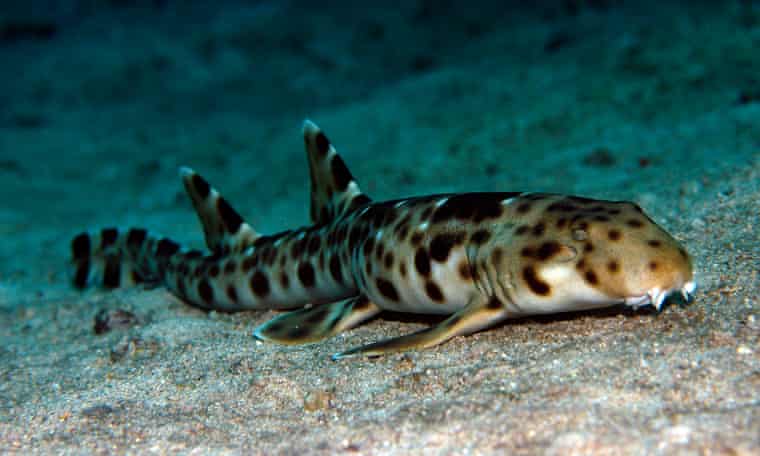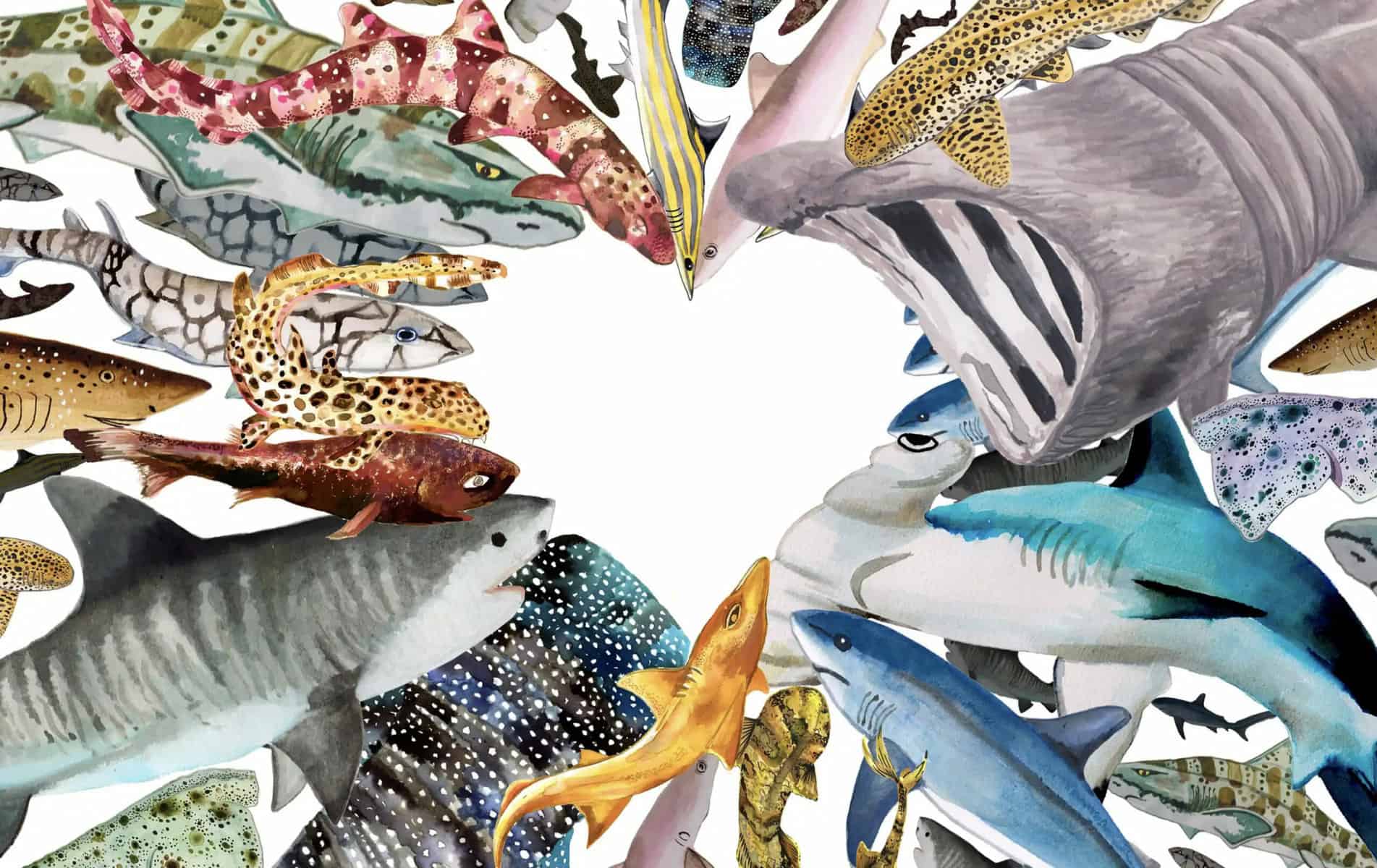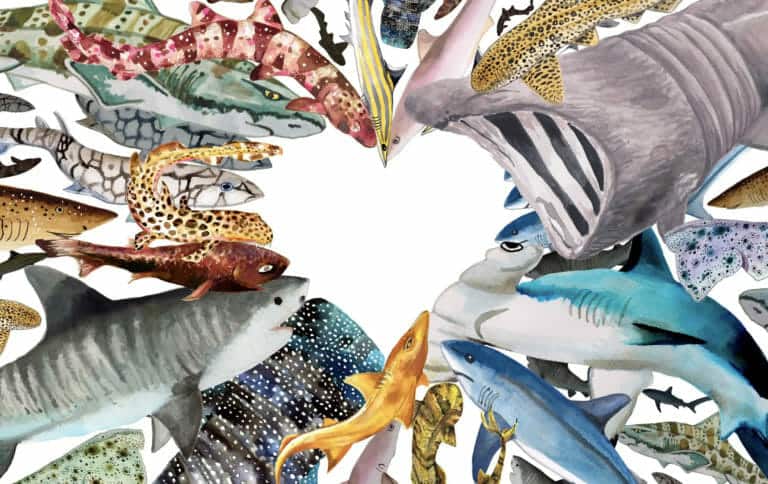There are more than 500 known species of sharks. Illustration: Good Wives and Warriors
Each day, as the sun sets over the coral-fringed Raja Ampat Islands in Indonesia, an underwater predator stirs. As predators go, it’s not especially big or ferocious – an arm’s length from head to tail, with a snuffling, moustachioed snout.
What’s unique is that it doesn’t so much swim along the seabed as walk. Using its four fins as legs, and twisting its spine like a lizard, it can emerge from the water and hold its breath for an hour, strutting across the exposed reef and clambering between tide pools to find prey.

It’s a walking shark, and far from the stereotypical view of these baleful beasts, it tells an alternative story of how sharks look and live. Biologists recently confirmed there are nine species of walking sharks. They are the ocean’s newest sharks – probably only 9m years old as a group, with the two youngest species splitting apart less than 2m years ago – challenging the long-held notion that sharks are ancient and unchanging. They are not evolutionary survivors from bygone eras, but animals that continue to adapt.
The walking shark, the newest species of shark in the ocean. Photograph: Gerry Allen/Conservation International The walking sharks themselves […]
Full article: Why we need sharks: the true nature of the ocean’s ‘monstrous villains’



